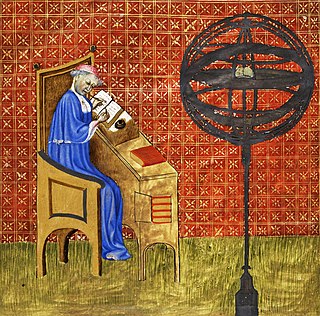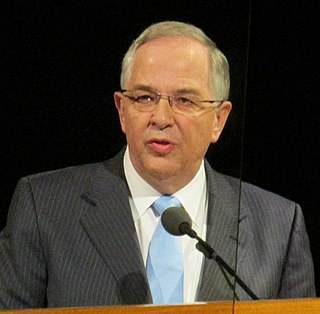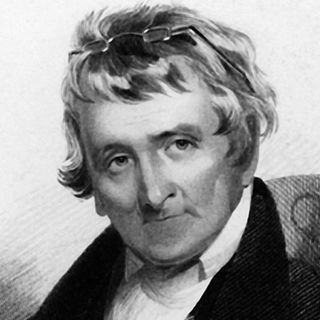A Quote by Nicole Oresme
But having considered everything which has been said, one could by this believe that the earth and not the heavens is so moved, and there is no evidence to the contrary. Nevertheless, this seems prima facie as much, or more, against natural reason as are all or several articles of our faith. Thus, that which I have said by way of diversion (esbatement) in this manner can be valuable to refute and check those who would impugn our faith by argument.
Related Quotes
We are not to renounce our senses and experience, nor (that which is the undoubted Word of God) our natural Reason. For they are the talents which he hath put into our hands to negotiate, till the coming again of our blessed savior, and therefore not to be folded up in the napkin of an implicate faith, but employed in the purchase of justice, peace, and true religion. For though there be many things in God's Word above Reason--that is to say, which cannot by natural reason be either demonstrated or confuted--yet there is nothing contrary to it.
For the sacrificed, in the hour of sacrifice, only one thing counts: faith-alone among enemies and skeptics. Faith, in spite of the humiliation which is both the necessary precondition and the consequence of faith, faith without any hope of compensation other than he can find in a faith which reality seems so thoroughly to refute.
It is an item of faith that we are children of God; there is plenty of experience in us against it. The faith that surmounts this evidence and is able to warm itself at the fire of God's love, instead of having to steal love and self-acceptance from other sources, is actually the root of holiness: It is a fatal mistake to think of holiness as a possession which we have distinct from our faith... Faith is the very highest form of our dependence on God.
In all things, therefore, where we have clear evidence from our ideas, and those principles of knowledge I have above mentioned, reason is the proper judge; and revelation, though it may, in consenting with it, confirm its dictates, yet cannot in such cases invalidate its decrees: nor can we be obliged, where we have the clear and evident sentience of reason, to quit it for the contrary opinion, under a pretence that it is matter of faith: which can have no authority against the plain and clear dictates of reason.
The gift of faith is a priceless spiritual endowment... Our faith is centered in God our Father, and Jesus Christ, our Savior and Redeemer. It is bolstered by our knowledge that the fullness of the gospel has been restored to the earth; that the Book of Mormon is the word of God; and that prophets and apostles today hold the keys of the priesthood. We treasure our faith, work to strengthen our faith, pray for increased faith, and do all within our power to protect and defend our faith.
Faith, to be faith, must center around something that is not known. Faith, to be faith, must go beyond that for which there is confirming evidence. Faith, to be faith, must go into the unknown. Faith, to be faith, must walk to the edge of the light, and then a few steps into the darkness. If everything has to be known, if everything has to be explained, if everything has to be certified, then there is no need for faith. Indeed, there is no room for it.
In reviewing the most mysterious doctrines of revelation, the ultimate appeal is to reason, not to determine whether she could have discovered these truths; not to declare whether, considered in themselves, they appear probable; but to decide whether it is not more reasonable to believe what God speaks than to confide in our own crude and feeble conceptions. No doctrine can be a proper object of our faith, which is not more reasonable to believe than to reject.
We may define "faith" as the firm belief in something for which there is no evidence. Where there is evidence, no one speaks of "faith." We do not speak of faith that two and two are four or that the earth is round. We only speak of faith when we wish to substitute emotion for evidence. The substitution of emotion for evidence is apt to lead to strife, since different groups, substitute different emotions.
We cannot have faith without belief, but we can believe without having faith. Belief is the foundation of faith. Faith is trusting in our Lord and Savior, Jesus Christ. The scriptures contain many assurances of salvation to those who exercise faith and obey the commandments... Faith is the motivating force that impels action.
Yet, after all, faith is not our righteousness. It is accounted to us in order to righteousness (Rom 4:5, GREEK), but not as righteousness; for in that case it would be a work like any other doing of man, and as such would be incompatible with the righteousness of the Son of God; the righteousness which is by faith. Faith connects us with the righteousness, and is therefore totally distinct from it. To confound the one with the other is to subvert the whole gospel of the grace of God. Our act of faith must ever be a separate thing from that which we believe.









































